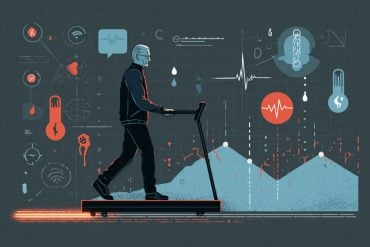Summary: A simple dietary change, without caloric restriction, can promote healthier aging. The study in yeast cells revealed that a shift from a glucose-rich to a galactose-based diet led to molecular changes that typically accompany aging.
These findings challenge the long-held notion that only caloric restriction can lead to healthier, longer lives. While the study was conducted in yeast cells, known to share many cellular mechanisms with humans, further research is needed to explore the real-world implications.
Key Facts:
- A dietary change from glucose to galactose reduced signs of aging in yeast cells, without needing caloric restriction.
- The health benefits of caloric restriction disappear in mice when a normal diet is resumed, making alternative approaches necessary for longevity.
- The positive effects were most pronounced when dietary changes were implemented in yeast cells at a young age, emphasizing the potential importance of early-life dietary choices.
Source: Babraham Institute
Researchers at the Babraham Institute are proposing an alternative link between diet and aging based on studies in yeast.
Dr Jon Houseley and his team have published their experiments, showing that healthy aging is achievable through dietary change without restriction by potentially optimising diet, and that ill-health is not an inevitable part of the aging process.
Scientists have long known that caloric restriction – intentionally consuming far less calories than normal without becoming malnourished – improves health in later life and may even extend life.

However, studies in mice show that caloric restriction really needs to be maintained throughout life to achieve this impact, and the health benefits disappear when a normal diet is resumed.
Dr Houseley’s new research conducted in yeast suggests an alternative to calorie restriction can lead to improved health through the lifecycle.
“We show that diet in early life can switch yeast onto a healthier trajectory. By giving yeast a different diet without restricting calories we were able to suppress senescence, when cells no longer divide, and loss of fitness in aged cells.” Said Dr Dorottya Horkai, lead researcher on the study.
Rather than growing yeast on their usual glucose-rich diet, the researchers swapped their diet to galactose and observed that many molecular changes which normally accompany aging did not occur.
The cells grown on galactose remained just as fit as young cells even late in life, despite not living any longer, showing that the period of ill-health towards the end of life was dramatically reduced.
“Crucially, the dietary change only works when cells are young, and actually diet makes little difference in old yeast. It is hard to translate what youth means between yeast and humans, but all these studies point to the same trend – to live a long and healthy life, a healthy diet from an early age makes a difference.” explains Dr Houseley.
Yeast are good model organisms for studying aging as they share many of the same cellular machinery as animals and humans. This avenue of research in yeast helps us to seek a more achievable way to improve healthy aging though diet compared to sustained and severe calorie restriction, although more research is needed.
About this diet and aging research news
Author: Honor Pollard
Source: Babraham Institute
Contact: Honor Pollard – Babraham Institute
Image: The image is credited to Neuroscience News
Original Research: Open access.
“Senescence in yeast is associated with amplified linear fragments of chromosome XII rather than ribosomal DNA circle accumulation” by Jon Houseley et al. PLOS Biology
Abstract
Senescence in yeast is associated with amplified linear fragments of chromosome XII rather than ribosomal DNA circle accumulation
The massive accumulation of extrachromosomal ribosomal DNA circles (ERCs) in yeast mother cells has been long cited as the primary driver of replicative ageing.
ERCs arise through ribosomal DNA (rDNA) recombination, and a wealth of genetic data connects rDNA instability events giving rise to ERCs with shortened life span and other ageing pathologies. However, we understand little about the molecular effects of ERC accumulation.
Here, we studied ageing in the presence and absence of ERCs, and unexpectedly found no evidence of gene expression differences that might indicate stress responses or metabolic feedback caused by ERCs.
Neither did we observe any global change in the widespread disruption of gene expression that accompanies yeast ageing, altogether suggesting that ERCs are largely inert. Much of the differential gene expression that accompanies ageing in yeast was actually associated with markers of the senescence entry point (SEP), showing that senescence, rather than age, underlies these changes.
Cells passed the SEP irrespective of ERCs, but we found the SEP to be associated with copy number amplification of a region of chromosome XII between the rDNA and the telomere (ChrXIIr) forming linear fragments up to approximately 1.8 Mb size, which arise in aged cells due to rDNA instability but through a different mechanism to ERCs.
Therefore, although rDNA copy number increases dramatically with age due to ERC accumulation, our findings implicate ChrXIIr, rather than ERCs, as the primary driver of senescence during budding yeast ageing.






